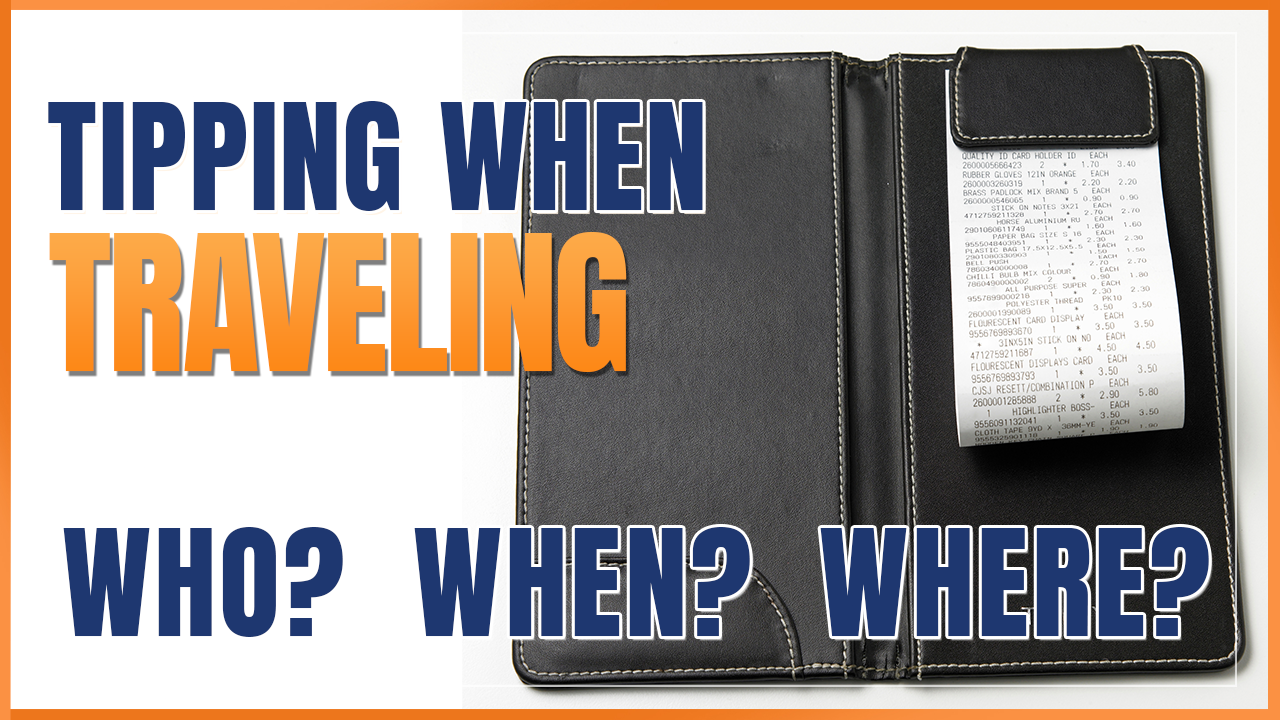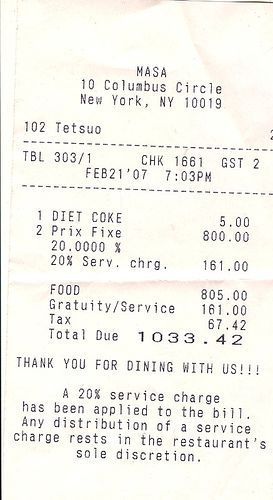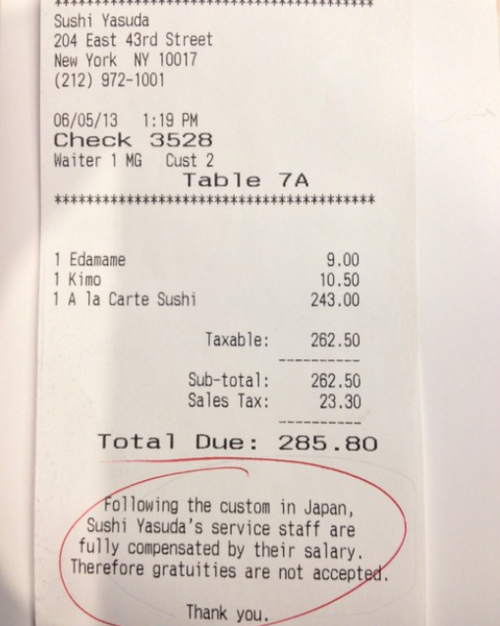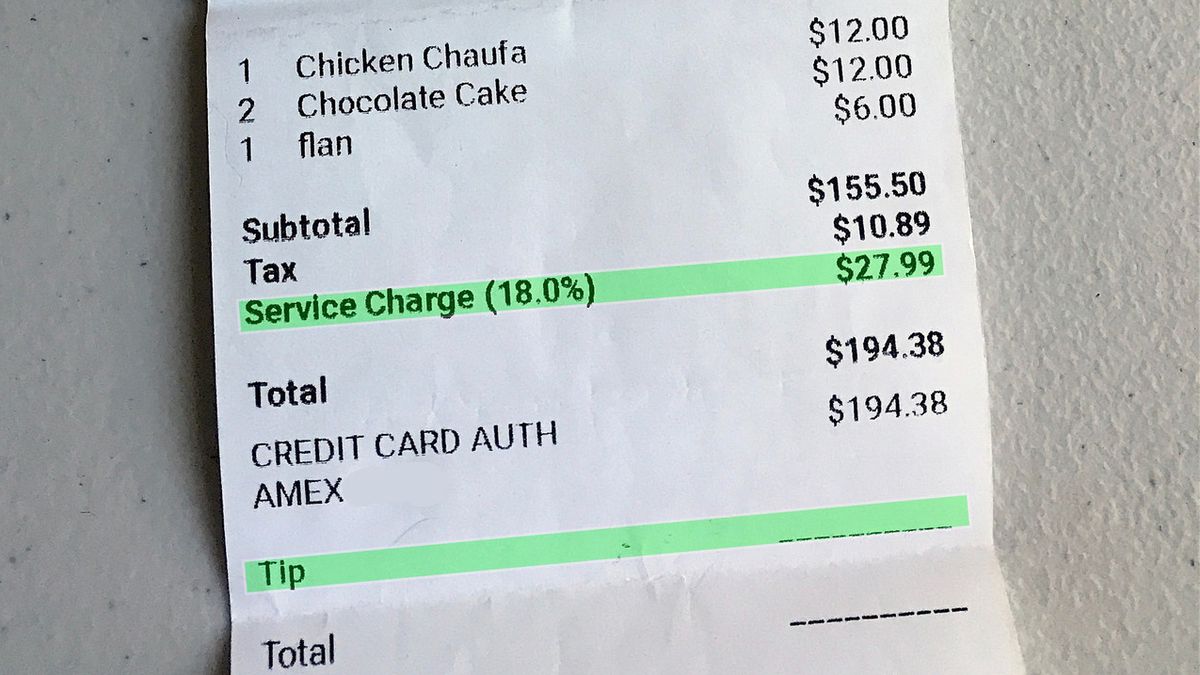As a dual British & American citizen, tipping is a controversial and often confusing topic that often comes up in conversation with both American and European friends. Let's face it, it can be very intimidating being in a foreign country, where you don't know what the local custom is with regard to leaving tips.
Having lived for many years in different parts of the States, as well as in England and Spain, I've been on both sides of the 'aisle' as it were, and it's fascinating to see the huge cultural differences between all these countries. Also, having had the opportunity to travel extensively throughout the world, I've learned a lot about what to do, as well as what not to do when it comes to tipping!
So if you've ever wondered how to handle tipping in France, tipping in Spain, whether to tip a taxi driver or not, what to give a hairdresser in the United Kingdom, tipping an U
ber, or even tipping a dog groomer, read on...
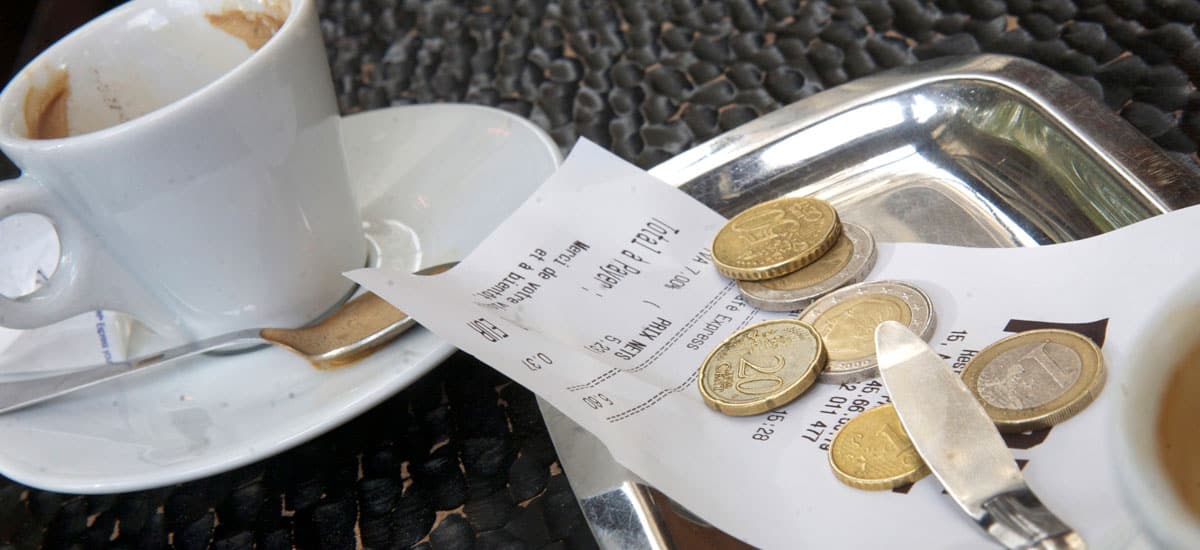
The Origin and History of TIPS
The word tip has been used for many centuries, and its original meaning is something that's contested. Some say it was an acronym of the phrase: "To Insure Prompt Service." Those who favor this explanation say a tip was money paid by a wealthy person before any service was rendered, to insure the group was well taken care of. They say the concept originated in parts of Europe in the middle ages, and was later 'exported' to the U.S. by people who felt like the practice of tipping upfront was associated with the upper class.
Others believe that the word tip originally simply meant 'to give or to share.'
After the U.S. Civil War, people who were formerly enslaved often found work as wait staff in restaurants. Many employers who hired these formerly enslaved folks wanted to keep their wages low, and so they came up with the practice of 'outsourcing' some of the cost directly to the customer, via the practice of asking for tips.
Interestingly, in 1915, a number of states passed laws prohibiting tipping, which by that time was becoming widespread among business owners wishing to keep costs low. But those laws didn't last long, and by 1926 all the bans had been overturned, and the practice was allowed to continue.
While the practice of paying something upfront for good service is still occasionally seen today in certain wealthy circles, it's rare. And over the years, the original meaning of tipping has morphed into a wide variety of customs around the world.
Tipping, Gratuities, Service Charge, or Something Else?
Let's look at the lingo. The first mistake to avoid is thinking that the words listed above, such as 'tipping,' mean the same thing in different countries. They don't. For example, the words tip or tipping are both commonly used in both the United States and Europe, but the meaning and interpretation of the word is radically different in each place.
The word 'gratuity' is mostly used in the U.S. as an alternative to the word 'tip.' Gratuity sounds a bit more refined, and it tends to be used on the bill at higher-class establishments, in preference to the word 'tip.'
Another use of the word 'gratuity' is when some restaurants, notably in the U.S., include an automatic service charge for groups of X or more (usually 6 or more). Since a group of that size inherently requires a lot of work, the restaurants reason that they want to insure the server gets rewarded for their work. Although it's a service charge, it's often indicated on the bill by the word 'gratuity.' Some restaurants have taken to adding a 20% 'gratuity' automatically, regardless of the party size, like this example...
Who, When, and How Much to Tip?
In some countries such as the U.S., it often seems like almost everyone has their hand out for a tip. That's unusual as far as the rest of the world goes.
Tipping in Europe
For Americans visiting Europe, they should be aware that tipping across the pond is viewed VERY differently from the States. No matter where you go in Europe, tipping is never expected, but a modest tip is appreciated for exceptional service or an outstanding experience.
In Europe, how much should you tip if you want to recognize someone who went above and beyond for you? Typically 10% is a good guide. So, for a haircut, tour guide, or wait staff you might tip 10% as a kind gesture. Again, a tip is not expected in Europe. In other words, it’s more of a gesture. Rarely does a tip form part of someone’s wage, as it does in the U.S. Again, it’s considered a bonus, for making an extra effort to do an amazing job.
The notable exception to the advice above is France, where service charges are now included automatically in the bill, so there's no need to tip.
In popular European tourist spots where lots of Americans visit, some restaurant staff, taxi drivers, and tour guides have admittedly become accustomed to Americans’ generous tips, but that should not be interpreted that tipping culture is the same in Europe as in the States, because it’s not. The good news is, in Europe, no one will be offended if you happen to tip generously, unlike in Asia, where it’s often misconstrued as an insult!
Tipping in the U.S.
To help Europeans who are visiting the U.S, I explain that although Americans use the term ’tipping’, it should really be considered a service charge, because it’s universally expected, even though the percentage that's given is a personal matter, and usually ranges from 10 to 20 percent, although it could be more. For a meal at a table-service restaurant (not fast food outlets), the customary tip is 18% or more for good service. If the service was very poor, some may choose to leave 15% as a statement to the waiter or waitress.
Other situations where a tip is expected in the States, include:
Taxi Drivers
Tour Guides
Valet Attendants
Beauty Treatment Providers
Barbers
Luggage Handlers
Housekeepers
Food Delivery Drivers
Tipping in Asia
In Asia, not only is tipping not expected, it's seen as offensive. Asians are proud to serve you to a high standard, and offering a tip is seen as disrespectful. For Americans that's a hard concept to swallow because tipping is so ingrained in their culture, but that's why it's important to know, before you go.
A similar view of tipping is also held in much of the Middle-east, in countries such as Oman, Yemen, Saudi Arabia, Dubai, and the other Emirates.
Interestingly, although it's considered illegal officially, tipping is not uncommon in restaurants. It's one of those situations where the law has never been updated to come in line with the common cultural practice of modern society.
Common Modern Tipping Practices
In some parts of the world, high-end hotels and restaurants have increasingly been seen to include a service charge as well as an invitation to leave a tip. Frankly, some establishments do this simply because they know they can get away with it. Worse, a few places include a 20% tip and then add another line for a tip. Many guests inadvertently add an extra tip, either in their rush to sign the bill, or sometimes simply because they don't understand the local language. I'm not impressed with places that do this, it's an unscrupulous practice in my opinion.
This is becoming increasingly common - service charge included, plus a space for an additional tip
If You're Not Sure Whether To Tip...
If in doubt, you can simply ask your hotel concierge or receptionist, or even a local, “what’s the tipping policy here,” and they’ll be glad to give you some direction. Traveling Internationally definitely requires an adjustment in thinking, because adding the customary 18% is so ingrained in our culture, but the vast majority of other countries don’t follow the same practice.
Tipping Often Makes No Logical Sense
Interestingly, a study done by Cornell University found that the quality of service received by an individual did not equate to the amount of the tip. Rather, a stronger correlation could be found based on how attractive the server was, and/or how much the total of the bill was. So it's actually more of a “self-imposed wealth tax” in that someone who can afford to pay for more expensive meals will generally pay a larger tip, regardless of service. Two other similar studies showed that minorities receive significantly lower tips than white people, regardless of the total amount of the bill, even when the people leaving the tip were also minorities.

SHARE THIS POST WITH YOUR FRIENDS:
* Disclosure: We may be compensated when you make a purchase from one of the vendors we recommend, however, our endorsements are always genuine and based on our own experience with the company. If you have a bad experience with any vendor we recommend, please contact us so we can try to help resolve the situation.

READY FOR MORE?
